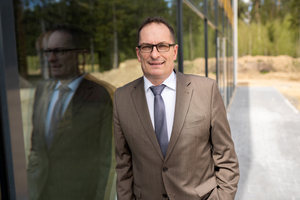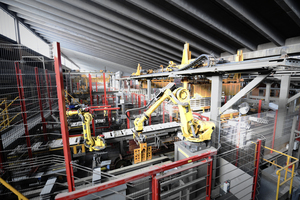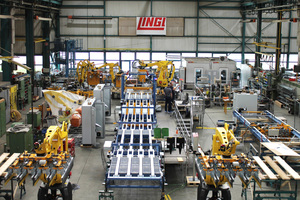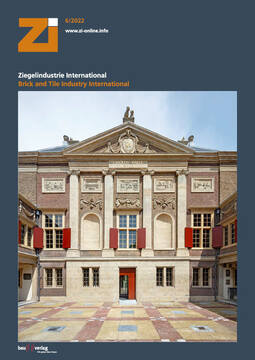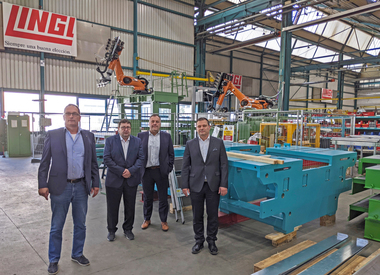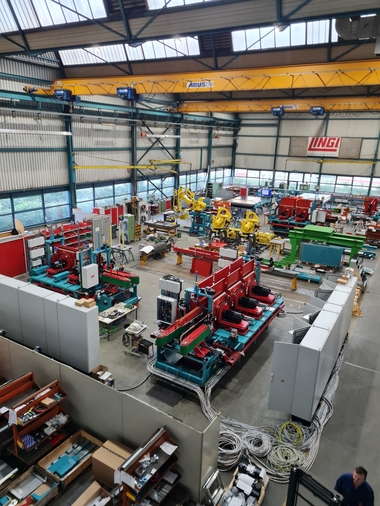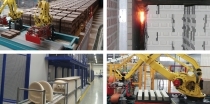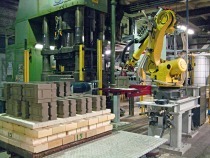Continuously on top of the issues of the ceramics industry
The companies of the Schug Group, which include Lingl Anlagenbau GmbH, Lippert GmbH & Co. KG and TRAFÖ Lagersysteme GmbH & Co. KG, complement each other excellently and, with approx. 1,000 employees, offer customers solutions for the successful implementation of their problems with future-oriented innovations.
The Schug Group was founded in 2017. The main member of the group was Lippert (specialised in conveyor technology and fine ceramics). The group was expanded in 2021 by the acquisition of Trafö (materials handling technology) and further diversified by LINGL Anlagenbau GmbH (specialist in heavy ceramics).
In this interview, Mr. Hubert Schug, CEO/GM of the group, talks about the current results and future goals of his companies.
Hubert Schug: Overall very positive, the development is definitely pointing in the right direction. The order situation is very good despite the well-known difficult external circumstances. The current challenges lie in the disrupted supply chains, rising material and energy costs and the general supply situation. We are facing these with high efficiency in our operations and flexible approaches to solutions. At the same time, we have significantly expanded cooperation with our regional and international suppliers. In addition, we are actively entering into strategic partnerships.
HS: The essential factor for the further development and growth of Lingl is the financial foundation secured by the group affiliation. This secures a permanent business operation for Lingl!
Another important point is that the operational processes, especially those of production, have been made more efficient and modern. Due to the improved international presence, we were able to utilise capacities very well in the past 18 months.
Internationality and the associated entry into new markets are further core themes of the Lingl strategy. The necessary developments of new products and plant concepts are being driven forward on the basis of the economic recovery that has taken place.
With an investment sum of 9 million euros within the next five years, the long-term development and growth of Lingl will be secured.
The international crises, especially the issues surrounding energy supply, naturally take up all our energy ... nevertheless, the following applies to us: “Every crisis also holds an opportunity”. With innovations and customer orientation, we go into the future stronger.
It is also our goal to continuously attract committed and motivated employees who will find a secure and modern workplace at Lingl.
HS: We have already been able to achieve a positive result in the first year despite the difficult general circumstances and despite the necessary start-up phase. In the first 10 months in 2022, we are fully on target in terms of turnover and earnings.
HS: Currently, the most stable sales markets are certainly the DACH region as well as the Benelux countries, USA and UK. In these regions, numerous orders were generated in the last 18 months and implemented with high customer satisfaction. In addition to many new plants put into operation, we have also succeeded not only in reactivating but also in expanding the service business.
Based on well-founded market analyses and in cooperation with associations such as the vbw, the Bavarian Business Association, we are working on opening up further regions and markets and intensifying our presence, especially in the Middle East, Turkey and their neighbouring states.
Of course, the geopolitical situation and instability in the financial markets have an impact on our business operations.
However, we were able to cushion negative developments in production and delivery capacity as well as in the availability of energy with consequences for our customers and thus for market development by acting quickly and consistently.
Our market is currently characterised by the pressure on the brick and tile industry to address the issues of resource efficiency, climate neutrality and energy savings more strongly than ever before. These are currently the absolute top issues in the industry.
That is why it is essential not only to talk about „decarbonisation“, but also to provide our customers with assistance and solutions for saving energy. We do this through technological innovations and new market-specific production and plant concepts. This ensures the success of our customers through competitive advantages and thus also our success.
HS: The first focus, as already mentioned, continues to be on helping our customers to operate their production in a performance- and energy-efficient manner. This is done by developing new intelligent machine and plant concepts. As an example of increasing efficiency, I can mention our digital twin, among others.
Industry 4.0 and the digital twin are on everyone’s lips; in our case, the digital twin helps with plant operation and with rapid fault finding in the event of a malfunction, as well as with the search for spare parts. This leads to an improved, continuous operation of the plant, which also helps the energy-intensive dryer and kiln in particular to operate more energy-efficiently.
The second focus of our current development of products to continuously improve the energy balance is on the substitution of natural gas as an energy source. We are currently converting five of our burner types to 100 percent hydrogen operation, but we will also offer the option of mixed natural gas/hydrogen operation. The first tests for this are planned for the beginning of 2023, so that we can present a market-ready product in mid-2023. In addition to hydrogen as a fuel, our burners are also being redesigned for other alternative fuels such as wood gas, biogas or landfill gas.
The Ukraine/natural gas crisis has led us to also realise a first project to convert a natural gas burner to liquefied natural gas (LNG).
So the question can be answered that the focus of our current development is on process optimisations, energy savings and the use of alternative fuels (to natural gas).
HS: Following on from what has been said before, Lingl has a variety of other solutions on offer. Starting with improved seals and insulation for existing tunnel kilns and tunnel kiln cars, we also offer conversion kits for insulating the burner systems. Additional heaters used on the drying plants can now be replaced by electric heaters.
Furthermore, we also offer solutions for temperature equalisation by hot air / hot gas circulation. This leads to a reduction of the cooking temperature and thus to a saving of fuel and CO2.
A natural gas burner recently developed through a BMWK, the German Federal Ministry for Economic Affairs and Climate Action, funding project for the utilisation of combustion air from the oven combustion chamber achieves energy savings of up to 30 percent in individual cases.
Another option is air heat exchangers, which extract energy from exhaust gas and exhaust air in order to reuse it elsewhere in the production process.
In addition to upgrades for the use of energy-saving equipment (e.g. energy-saving motors), Lingl is also developing a process control system for dryers and kilns for retrofitting, which, coupled with production planning, allows energy-optimised dryer and firing curve control. This, too, can significantly reduce CO2 emissions.
Although many of these upgrades are not new, they are now much more economically viable due to the sharp increase in energy and CO2 costs.
The various solution approaches described above and their economic viability can be worked out within the framework of on-site process analyses. We offer this as a service.
HS: Lingl stands on the strong foundation of the Schug Group and will be upgraded internationally as a permanent and solid partner for high-tech products in the industry! With the existing know-how as well as our technological innovations we are ready for the future!
In the great task of decarbonising the ceramics industry, Lingl will take an active role with the mix of motivated young, but also long-standing experienced employees.

